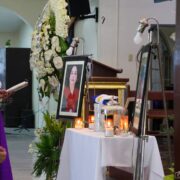The next Ombudsman should be more than a watchdog

Institutions are not just offices that process cases; they are mirrors of the kind of society we live in. When institutions fail, they do more than break rules—they corrode public trust, the invisible glue that keeps a democracy intact. Among the many institutions in our country, the Ombudsman carries this burden in a profound way.
For years, Filipinos have expected the Ombudsman to be the chief prosecutor of corruption. Yet, when cases drag on for years or are seen as selective, disappointment follows. The challenge for the next Ombudsman is to go beyond this narrow view and reimagine the office as more than a courtroom adversary. The Ombudsman must also be a teacher of civic integrity, a guardian of public trust, and a voice for ordinary citizens.
The next Ombudsman cannot simply react to cases as they arrive; the office must also help rebuild the culture of integrity, so citizens once again believe that accountability is possible.
This requires bringing the Ombudsman closer to the people. Imagine an office that does not wait for complaints at its doors, but actively engages communities, teaches young people the value of honesty, and opens its processes to public scrutiny.
The fight against corruption is also a fight against inequality. The powerful often bend the rules in their favor, while ordinary citizens face expensive legal costs, delayed decisions, and complicated procedures. The next Ombudsman must make justice tangible for everyone whether they are a public school teacher, a farmer, a tricycle driver, or a market vendor. Equality before the law should be more than a constitutional phrase; it should be something people can feel in their daily lives.
Corruption is not destiny; it is a social arrangement that has been allowed to persist. If it were built, it could also be dismantled. Citizens, civil society, and public servants can create new habits of accountability, especially if the Ombudsman leads by example. Change begins with institutions that refuse to normalize corruption and instead cultivate integrity as the standard.
This does not mean abandoning prosecution, which is the Ombudsman’s core mandate. On the contrary, swift and fair handling of cases is crucial. But it must go hand in hand with prevention—through civic education, community participation, and reforms that close the loopholes where corruption festers. Only when punishment and prevention work together can we create lasting change.
The Ombudsman, in short, must be more than a watchdog. It must be an institution that inspires confidence, teaches integrity, and demonstrates fairness. When people trust that justice is accessible, they do not give up on democracy. They fight for it.
The next Ombudsman will face powerful resistance and entrenched interests. But institutions endure not because they are perfect, but because they embody a people’s aspirations. The task is not just to prosecute the corrupt but to restore hope. Filipinos must see that the law can protect the powerless, not just serve the powerful.
At stake is more than the credibility of one office. At stake is the very promise of equal citizenship. If the next Ombudsman can rise to this challenge, the office can remind us of a simple but profound truth: integrity is not just written in laws. It must be lived, taught, and passed on.
Prince Kennex R. Aldama,
aldamaprince@gmail.com
For letters to the editor and contributed articles, email to opinion@inquirer.net

















